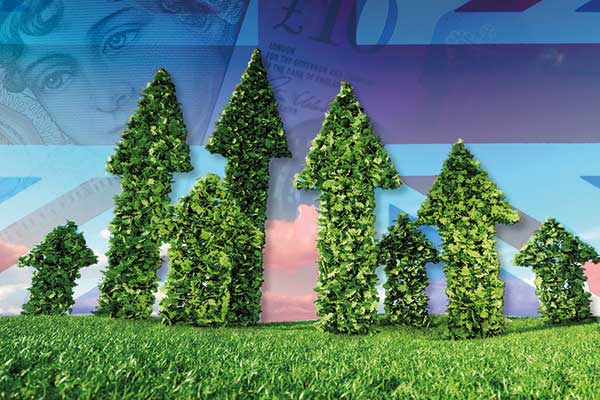Fashionable ESG prompts flurry of fund launches
If a particular market or theme is doing well, new funds will be launched to exploit the boom.
11th June 2020 14:02
by Tom Bailey from interactive investor
If a particular market or theme is doing well, new funds will be launched to exploit the boom.

Reflecting a growing interest in ethical and sustainable investing, there has recently been a flurry of ESG (environmental, social, governance) launches from fund management companies over the past few weeks.
Vanguard, one of the world’s largest asset managers, has launched the Vanguard ESG Developed World All Cap Equity Index fund and the Vanguard ESG Emerging Markets All Cap Equity Index fund.
Meanwhile, BMO Global Asset Management is trying to bring the world of ESG to Asia, with the launch of its Responsible Asian Equity fund.
Similarly, NN Investment Partners and China Asset Management Co are offering ESG-minded investors access to China, recently launching an ESG-integrated China A-Share Equities fund.
In addition, Fidelity International has recently further expanded its ‘sustainable family’ range of funds with the launch of three actively managed ESG exchange traded funds (ETFs), investing in global, Europe and US equities.
Aviva has also been getting in on the action, recently unveiling its Aviva Investors Climate Transition Global Equity fund. It invests in companies supporting the transition to a low carbon economy as global temperatures continue to rise due to climate change.
Clearly it is a good time to be an ESG-minded investor or a fund manager with ESG expertise. There is now wide array of both passive and active fund options spanning different markets and regions.
The new launches supposedly represent a growing interest in ESG funds from investors, with many commentators pointing to growing environmental concerns, with one potential driver being the high-profile protests of groups such as Extinction Rebellion in 2019. Asset managers, therefore, are responding to consumer demand, as all good businesses should.
There is, of course, nothing wrong with investors wishing to invest in ESG products because their conscience dictates that they should. However, those hoping that the new ESG theme will provide outperformance, as is often promised by ESG funds, should be a bit more sceptical.
Markets themselves often fall for fads, whether it is the British railway boom in the 19th century, the US’s Nifty Fifty stocks in the 1960s, or the Dotcom bubble at the turn of the millennium.
In the case of the latter, nearly every fund house felt it necessary to launch their own technology focused fund. Some are still with us today, having weathered the storm; many are not.
This serves as a reminder that if a particular market is doing well, new funds will be launched to exploit the boom. After all, asset managers are in the business of selling a product – investment funds. If there is a sense that a certain market or “theme” is becoming popular with the public, as there is now with ESG, they will package and market their investment products to appeal to this.
Of course, the case of ESG is slightly different to the tech boom. There is no agreed definition of ESG or even widespread agreement on which stocks even qualify for ESG inclusion. Outside of some frothier areas of the alternative energy market you’d be hard pressed to make the case that there is an ‘ESG bubble’.
But there does not always have to be a bubble in a particular asset class for a faddish theme to appear. Most notably this happened with the so-called BRICS theme in the 2000s. The acronym stood for Brazil, Russia, India, China and South Africa and was coined by Goldman Sachs analyst Jim O’Neill. The theme clearly appealed based on excitement about the economic consequences of the ‘rise of the rest’ thanks to globalisation.
Asset managers launched a flurry of products to appeal to this theme. However, while emerging markets are still a popular theme today, most of those funds have since been wound up. If you search BRICS on any directory of investment funds or trusts you will now not find many results.
ESG may of course be different. The BRICS theme was doomed due to the failure of many of the countries in the acronym to actually produce sustained economic growth and therefore company revenue growth they were supposed to.
This article was originally published in our sister magazine Money Observer, which ceased publication in August 2020.
These articles are provided for information purposes only. Occasionally, an opinion about whether to buy or sell a specific investment may be provided by third parties. The content is not intended to be a personal recommendation to buy or sell any financial instrument or product, or to adopt any investment strategy as it is not provided based on an assessment of your investing knowledge and experience, your financial situation or your investment objectives. The value of your investments, and the income derived from them, may go down as well as up. You may not get back all the money that you invest. The investments referred to in this article may not be suitable for all investors, and if in doubt, an investor should seek advice from a qualified investment adviser.
Full performance can be found on the company or index summary page on the interactive investor website. Simply click on the company's or index name highlighted in the article.